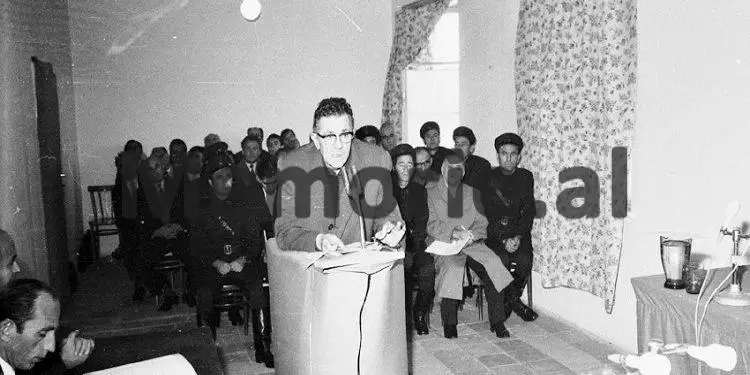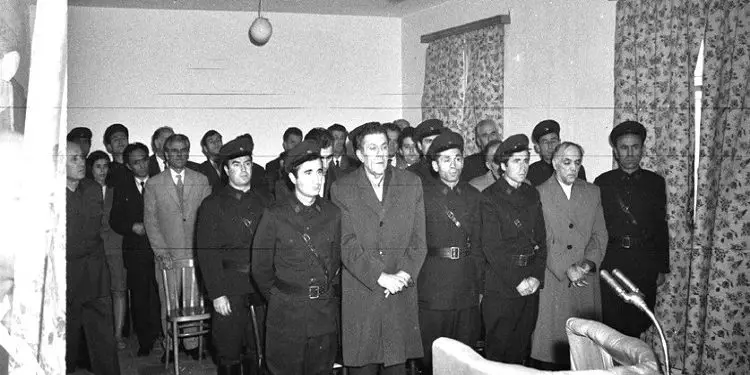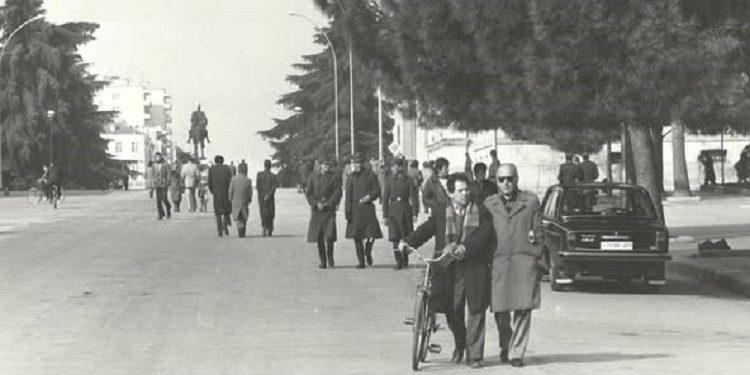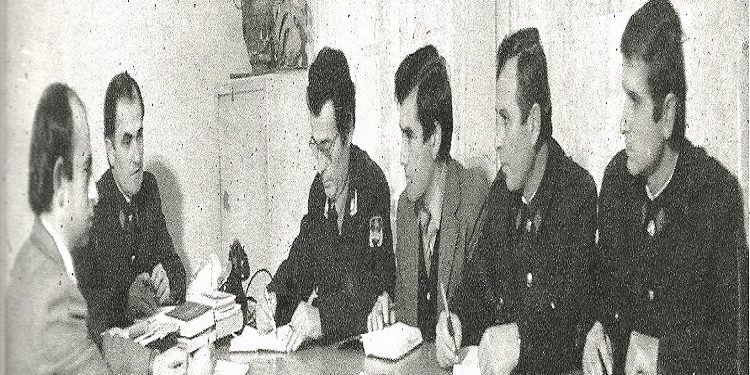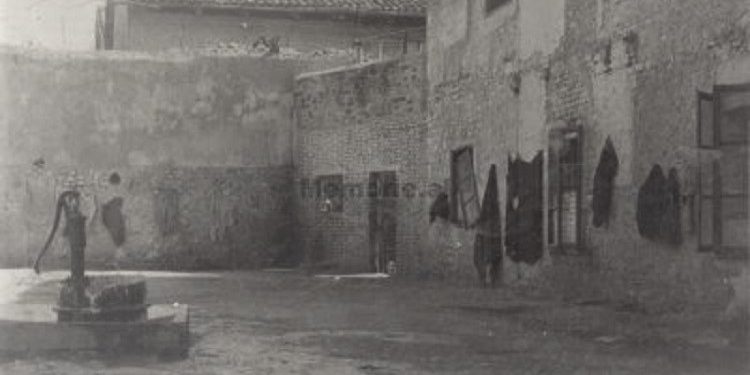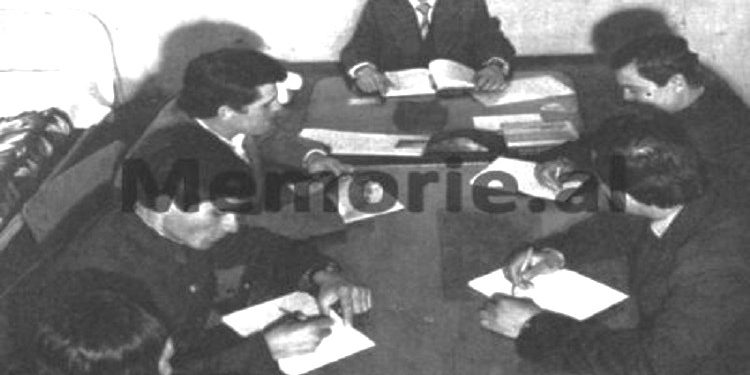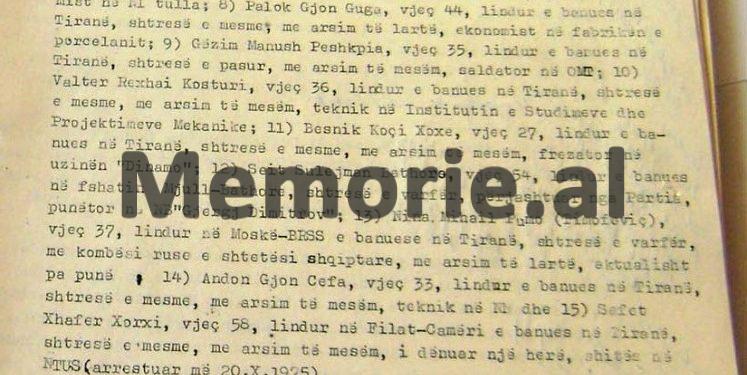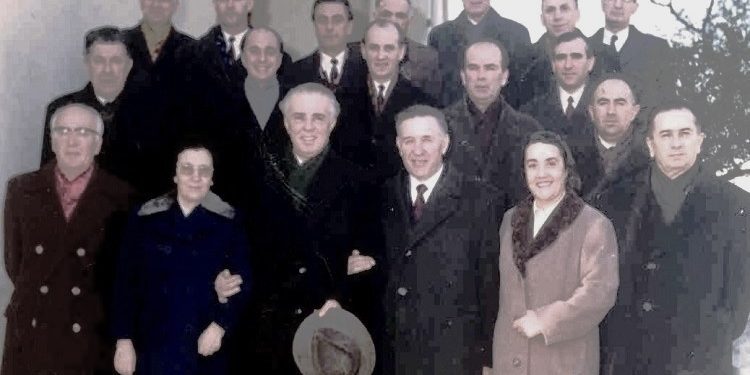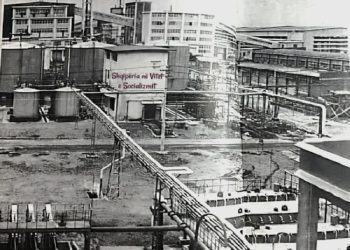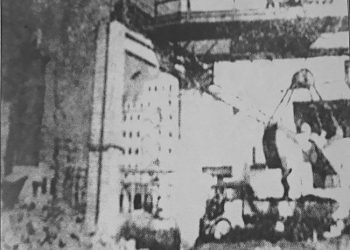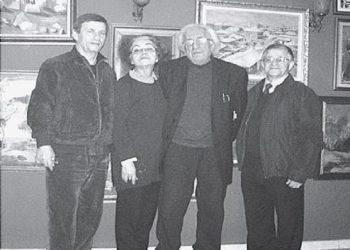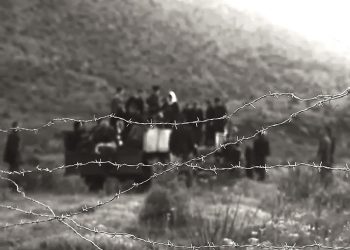From Dashnor Kaloçi
Memorie.al / Always guided by the teachings of Vladimir Ilyich Lenin, the “great leader” of the Bolshevik October Revolution, and his loyal successor, Joseph Vissarionovich Stalin, the top leadership of the Party of Labor of Albania, led by Enver Hoxha and his successor, Ramiz Alia, for nearly 45 years, heavily propagated “class struggle,” considering it a “driving force in society” that, according to them, “rose and fell, but never died out.” These slogans, borrowed from the distant steppes of the Soviet Union and implemented with the utmost precision by the communist regime in Albania for nearly half a century, sent thousands of innocent Albanians behind the bars of prison cells, where they suffered the horrors of that inhuman system in forced labor camps, prisons, and internment, until 1991.
Arrests and convictions in political prison camps of those citizens whom the communist regime considered “enemies of the people,” accusing them of being “kulaks,” “Ballists,” “Zogists,” “traitors of the homeland,” “reactionaries,” etc., etc., accusations of all kinds, continued permanently throughout the existence of that regime (October 1944-March 1991), but they were sometimes intensified depending on various events in the country and political conjunctures in the international arena.
There were even cases when arrests, convictions, and internments were carried out in campaigns, mainly in the discovery of “hostile groups,” such as: in 1948-’49, after the break-up of relations with Tito’s Yugoslavia (the conviction of the “Koçi Xoxe Group”), in the years 1955-’56 (the conviction of Tuk Jakova and Bedri Spahiu), in 1956, after the Tirana Conference (the conviction of the “Liri Gega and Dali Ndreu Group”), after the break-up with the Soviet Union in 1960-’61 (the conviction of the “Çam Group of Teme Sejko”), in 1973-’74, after the 11th National Song Festival on Radio-Television (the conviction of the “Group in Arts and Culture”) led by Todi Lubonja and Fadil Paçrami, in 1974-’75 (the conviction of the “Coup Group in the Army”) led by Beqir Balluku, Petrit Dume, and Hito Çako, in 1975-’76 (the conviction of the “Economic Sabotage Group”), led by Abdyl Këllezi, Koço Theodhosi, and Kiço Ngjela, in 1978 (after the break-up of relations with the People’s Republic of China), and up to that of the years 1981-’83 (the conviction of the “hostile group of Mehmet Shehu”), led by Kadri Hazbiu, Feçor Shehu, Nesti Nase, and Llambi Ziçishti.
After the conviction of all these “hostile groups,” where Enver Hoxha’s closest collaborators were in the dock, many other people, high-ranking officials, etc., or those with no connection to them, were also convicted, accused of being members or collaborators of those “hostile groups”! The arrest and conviction of these people were mainly done for two reasons: first, for the public opinion to believe in their “hostile activity,” and second, for the communist regime to attempt and show its power, by exercising terror, fear, and pressure on ordinary people, or on those it considered “contingents” and “enemies of the people,” such as those with a background from “overthrown classes.”
This happened mainly in cases when official Tirana broke off relations with “friendly countries,” such as Tito’s Yugoslavia, Stalin’s and Khrushchev’s Soviet Union, and the People’s Republic of China, but as we emphasized a little earlier, also in the case of the crackdown on “hostile groups”! All of the above are now known, but to concretize them, that is, the fact of the intensification of arrests and convictions in the case of crackdowns on “hostile groups,” in this article we are publishing a “Secret” archival document (taken from the Archive of the Ministry of Internal Affairs), dated October 18, 1975, where in one day in Tirana, a total of 15 people were arrested, accused of agitation and propaganda.
This event, namely the arrest of these 15 people in one day, which it must be said had not happened in the city of Tirana since February 1951 (the “bomb incident at the Soviet embassy,” where dozens of people were arrested in one day, of whom 22 were executed), according to the testimonies of some people who experienced that day (October 18, 1975), it is known that fear and terror were caused throughout Tirana. The arrest of 15 people in one day took place just one week before the trial against the “Coup Group in the Army,” led by Beqir Balluku, Petrit Dume, and Hito Çako, a trial that began on October 25, 1975, and ended on November 5, when they were sentenced to death and immediately executed.
So, the choice of the date October 18, 1975, for the arrest of those 15 people (among them were Mandi Koçi, a former partisan and personal photographer of Enver Hoxha near the General Staff since 1943, and Beqir Eqerem Omari, who was the nephew of Bahri Omari, Enver Hoxha’s brother-in-law), most likely seems to have been a premeditated action by the relevant bodies of the State Security and the Ministry of Internal Affairs (approved by the top leadership of the Party of Labor of Albania and personally Enver Hoxha), with the aim of exercising fear and terror, precisely in Tirana, where Beqir Balluku had had the greatest popularity! The document in question is published for the first time and with the corresponding facsimiles by Memorie.al
SECRET ARCHIVAL DOCUMENT WITH THE OPERATIONAL COMMUNIQUÉ OF THE MINISTRY OF INTERNAL AFFAIRS OF DECEMBER 21, 1975, WITH THE NAMES OF THE 15 ARRESTED PEOPLE IN TIRANA, FOR AGITATION AND PROPAGANDA
PEOPLE’S REPUBLIC OF ALBANIA SECRET
MINISTRY OF INTERNAL AFFAIRS Copy No. 3
GENERAL BRANCH Tirana, October 21, 1975
OPERATIONAL COMMUNIQUÉ NO. 248
On 18.X.1975, with the approval of the General Prosecutor, the following were arrested for agitation and propaganda against the people’s power;
1) Mandi Adham Koçi, age 66, born in Korça and living in Tirana, filmmaker by profession, with higher education, poor class, expelled from the Party;
2) Thanas Pano Naçi, age 39, born in Himara and living in Tirana, pilot by profession, currently a guard at the Electro-Medical Plant, with higher education, poor class;
3) Fiqri Myslym Llagami, born and living in Tirana, currently unemployed, with higher education, middle class, convicted;
4) Vlash Mihal Dhaskali, age 66, born and living in Tirana, middle class, with secondary education, retiree;
5) Rruzhdi Sali Osmanagaj, age 36, born in Podgorica and living in Tirana, middle class, with secondary education, carpenter (instructor), at the Geodesy enterprise;
6) Beqir Eqerem Omari, age 46, born in Fier and living in Tirana, middle class, with secondary education, divorced, worker at the Industrial Enterprise of Teaching Aids;
7) Strati Kosta papa (Bozdo), age 22, born in the village of Koshovicë – Gjirokastër, living in Tirana, poor class, with higher education, expelled from the Party, former officer, currently an economist at the “Tulla” Industrial Enterprise;
8) Palok Gjon Guga, age 44, born and living in Tirana, middle class, with higher education, economist at the Porcelain factory;
9) Gëzim Manush Peshkpia, age 33, born and living in Tirana, wealthy class, with secondary education, welder at the Transport Vehicles Workshop;
10) Valter Rexhai Kosturi, age 36, born and living in Tirana, middle class, with secondary education, technician at the Institute of Mechanical Studies and Design;
11) Besnik Koci Xoxe, age 37, born and living in Tirana, middle class, with secondary education, milling machine operator at the “Dinamo” plant;
12) Seit Sulejman Bathore, age 54, born and living in the village of Mjull-Bathore, poor class, expelled from the Party, worker at the “Gjergj Dimitrov” Agricultural Enterprise;
13) Nina Mihail Pumo (Timofoviç), age 37, born in Moscow – Soviet Union and living in Tirana, poor class, of Russian nationality and Albanian citizenship, with higher education, currently unemployed;
14) Andon Gjon Çefa, age 36, born and living in Tirana, middle class, with secondary education, technician at the Construction Enterprise;
15) Safet Xhafer Xorxi, age 58, born in Filat – Çamëri and living in Tirana, middle class, with secondary education, previously convicted, seller at the Social Food Commercial Enterprise, (arrested on 20.X.1975). / Memorie.al
DIRECTING OFFICER
KOLI SHUKE




